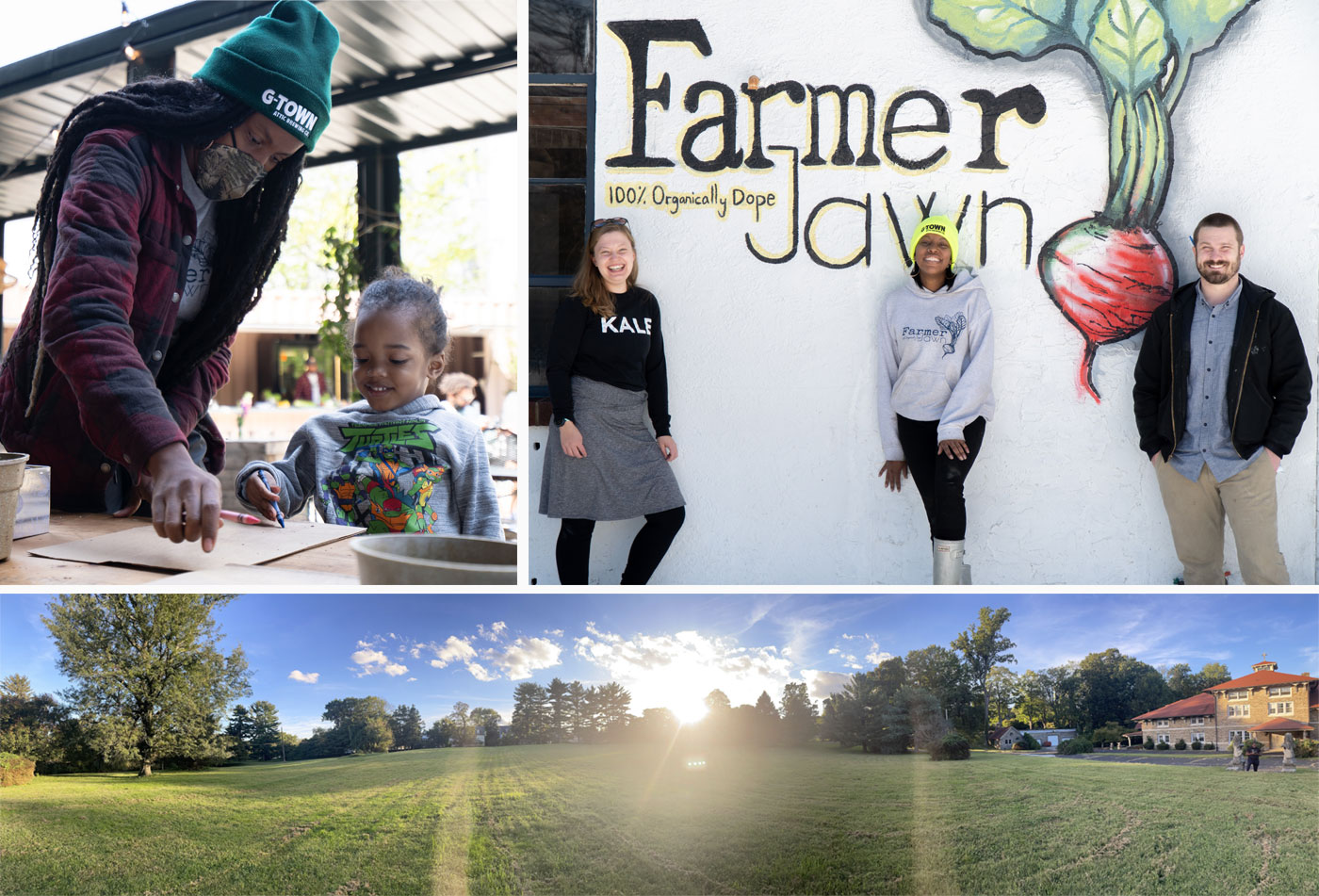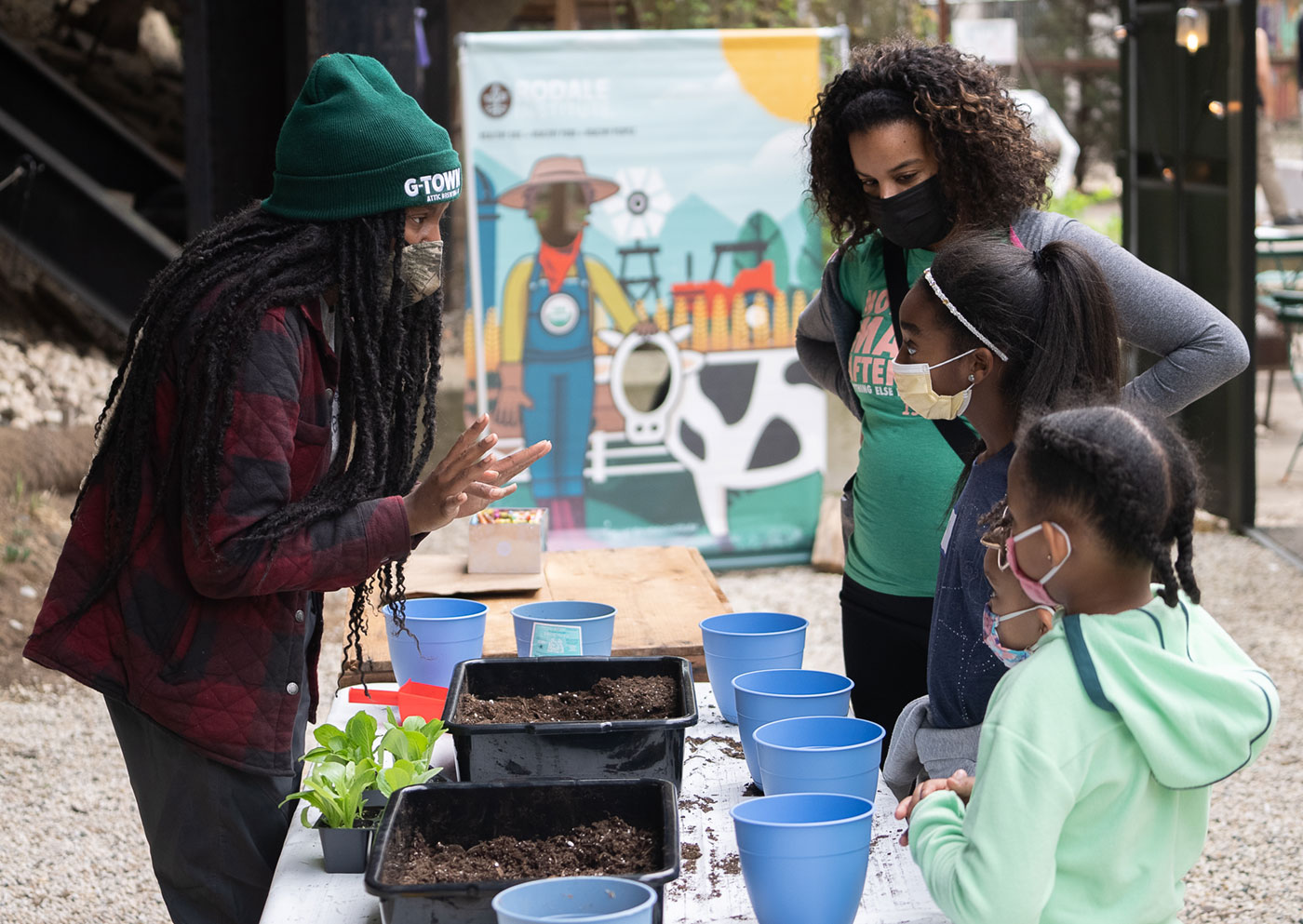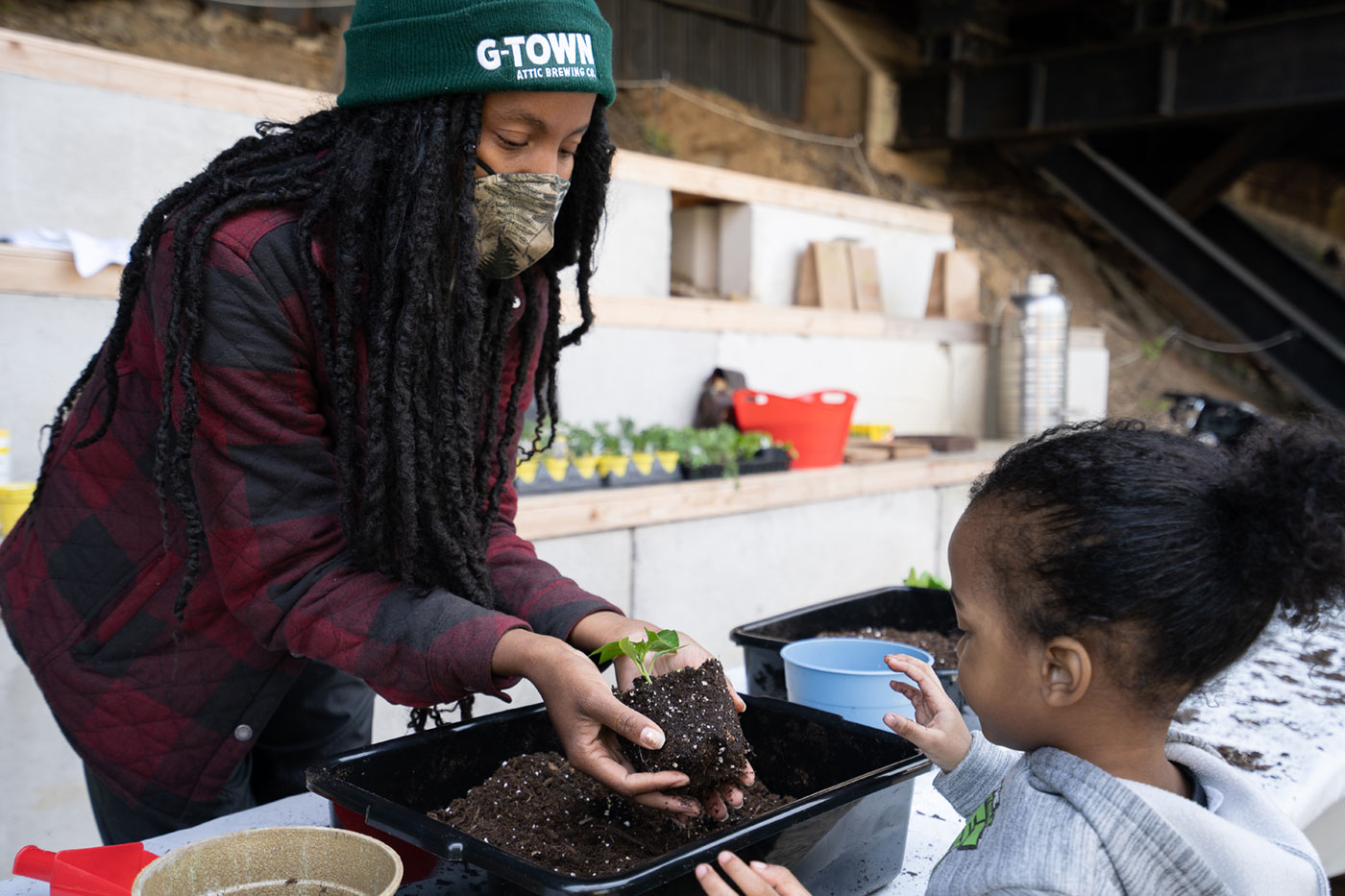FarmerJawn, an Elkins Park Organic Farm, Connects the Dots Between Food, Health and Community
Under the canopy of the Philadelphia Reading Rail Park, Christa Barfield watched as a small girl took the potted plant from her hands and looked up with wonder.
“It was magical seeing children’s eyes light up in amazement about touching soil,” reminisces Barfield, owner of FarmerJawn, an organic farm and CSA based in Elkins Park. “Having kids repot veggies and herbs is the gateway to our future understanding of how important farming is to human need.”
The Earth Day event featuring FarmerJawn was a program of Rodale Institute’s Grow Clean Water initiative, a family-focused campaign meant to connect the dots between organic farming and water.
Barfield knows the impact that farms can have on a community, whether through the quality of the water they drink or their access to fresh, organic food. In 2020, Barfield started an organic CSA focused on her Northwest Philadelphia neighborhood.
“Our farm serves as a safe space for people to reconnect with agriculture at the hands and vision of a black woman in a major city where the spaces we create, the food we grow, and the people we inspire aren’t expected to exist,” says Barfield. “Children will grow up saying they want to be an organic farmer because of our work.”
Barfield was first introduced to Rodale Institute through their farmer consulting service, which helped her move toward obtaining her USDA organic certification. She has since become an ambassador of the nonprofit research and education farm headquartered 90 minutes north of the city in Kutztown, Pennsylvania, and a proponent of its Grow Clean Water initiatve.
Nearly 17 million people, including residents of the City of Philadelphia, get their drinking water directly from the Delaware River, a body of water that is severely impacted by the chemicals used on conventional farms upstream.
“Awareness of where your food and water really come from is rarely thought about by busy city folks on the go,” explains Barfield. “When they turn their faucet on, they expect water to come out and they expect food to be readily available at markets and eateries. Organic farming connects the dots of how people see the planet and ways that we can take care of it, so it continues to take care of us.”
FarmerJawn focuses its farming practices on building soil health, rejecting the use of any chemicals and instead using methods like compost to protect plants from weeds and pests.
By going organic, farms like FarmerJawn are not only growing food that’s healthier for people and the planet; they’re safeguarding the drinking water of millions of people in the Delaware River Watershed and beyond.
For Barfield, organic farming all comes back to its impact on the community. The farm’s mission is focused on providing organic food to food insecure families that have little to no access to chemical-free, fresh food while educating the community about the importance of organic farming.
The farm’s mission is focused on providing organic food to food insecure families that have little to no access to chemical-free, fresh food while educating the community about the importance of organic farming.

“I wanted to bring organic farming to Philly to provide representation of a black women-owned farm that grows organically,” says Barfield. “A farm that destigmatizes soil for black and brown people that don’t even know they’ve been traumatized by it, while reconnecting urban people to their food for the betterment of everyone’s health.”
In 2021, FarmerJawn relocated its farming operation to its current location at Elkins Estate in Elkins Park, where Barfield plans to focus not only on greenhouses but on regenerating the soil on the historic property. She also builds edible landscapes for clients around the Philadelphia area, helping them bring pesticide-free food and pollinator habitats to their backyards.
“I live in a city where health disparities are high,” says Barfield. “FarmerJawn seeks to change that.”
- To learn more about Rodale Institute’s work, and to get a free educational activity book, visit GrowCleanWater.org. To get involved with FarmerJawn or sign up for the CSA, visit FarmerJawnPhilly.com or follow on Instagram at @farmerjawnphilly.

Photos courtesy of Rodale Institute; panorama photo of farm courtesy of Christa Barfield.





